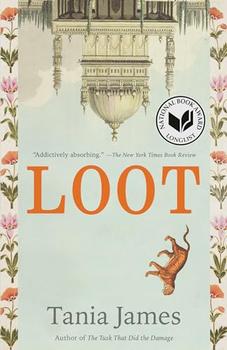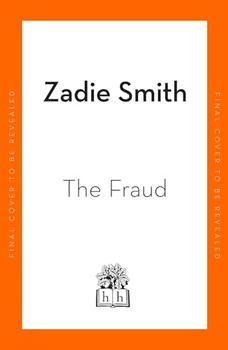Summary | Excerpt | Reviews | Beyond the book | Read-Alikes | Genres & Themes | Author Bio

A Novel
by David DiopIn early 19th-century France, Aglaé's father Michel Adanson dies of old age. Sitting at his bedside, she hears his last word—a name she doesn't know. While going through his possessions, she finds a hidden drawer concealing a journal addressed to her. The journal tells a story from Michel's time in Senegal half a century before.
A botanist, Michel travels to Africa in order to study the native plants, with the goals of collecting specimens to bring back to France and determining ways in which the French might profit from them. While there, he hears a story about a Wolof woman named Maram, who had been sold into slavery but escaped. Michel finds the story so intriguing that he decides to take his young guide Ndiak and a few guards on a journey along the coast to the town where she is rumored to live in the hopes of determining the truth of the tale.
David Diop's novel is made up of stories within stories, with the narrative of Aglaé's grief transitioning to her father's memories conveyed through his journal, which in turn contains a record of Maram's story as she told it to Michel. Diop conveys each perspective vividly and portrays each character as sympathetic and human without glossing over their flaws. We first see Aglaé's love for and close relationship with her aging father, which contrasts with the harm caused by his emotional distance during her childhood. Finally readers witness the events that caused Michel to retreat into his work and neglect the other parts of his life.
The novel brings into sharp focus the horrors of the colonial system, as well as the differing ways it affects those caught up in it. Because he is not directly involved in the slave trade, Michel more or less convinces himself he hasn't contributed to the harm done by France's colonization of Senegal. Throughout the book, however, and through Michel's own narration, readers are shown evidence to the contrary. Michel and Aglaé, though profoundly moved by the stories of enslavement they hear and read, are able to spend most of their lives glossing over the realities of the slave trade and their role in it. Other characters such as Maram and Ndiak do not have the same privilege.
Despite the story's narrow perspective, readers gain glimpses of the wider society and see that the Africans Michel encounters have full lives of which he's not fully aware. We receive hints of Ndiak's ambitions and involvement in politics as well as glimpses of the spiritual beliefs held by the various people they meet. Diop thoughtfully conveys these details while maintaining his narrator's separation from, and often disinterest in, them.
Beyond the Door of No Return will resonate with readers drawn to either vivid settings or beautiful language. The book's prose is stunningly written and translated, with descriptions well worth savoring:
Above her stretched a dusk of blue, orange, and green clouds, melting into a vaporous golden sky. Clouds of lying fish pursued by invisible predators splashed the boat's hull. Their fins could not propel them fast enough to escape the danger menacing them under the water's surface. Soaring toward the sky, they fled the wide-open pink mouths that surged upward from the ocean's depths. But they were also being hunted from above by white birds: cormorants or seagulls, perhaps. And those silver-flashing arrows—half fish, half bird—were snatched by sharp beaks and crushed by powerful jaws amid bouquets of foam.
I would not recommend this book to readers looking for a romance, even a tragic one, as the focus of the book is not on the relationship between Michel and Maram, but instead on the abuse she has suffered and the ways in which meeting her changes, and fails to change, Michel. Beyond the Door of No Return is a first-rate historical novel, richly conveying both the wider scope of the 18th-century colonization of Senegal and the individuals struggling to survive and find meaning within it.
![]() This review was originally published in The BookBrowse Review in September 2023, and has been updated for the
October 2024 edition.
Click here to go to this issue.
This review was originally published in The BookBrowse Review in September 2023, and has been updated for the
October 2024 edition.
Click here to go to this issue.

If you liked Beyond the Door of No Return, try these:

by Tania James
Published 2024
A spellbinding historical novel set in the eighteenth century: a hero's quest, a love story, the story of a young artist coming of age, and an exuberant heist adventure that traces the bloody legacy of colonialism across two continents and fifty years. A wildly inventive, irresistible feat of storytelling from a writer at the height of her powers.

by Zadie Smith
Published 2024
From acclaimed and bestselling novelist Zadie Smith, a kaleidoscopic work of historical fiction set against the legal trial that divided Victorian England, about who gets to tell their story—and who gets to be believed
Your guide toexceptional books
BookBrowse seeks out and recommends the best in contemporary fiction and nonfiction—books that not only engage and entertain but also deepen our understanding of ourselves and the world around us.